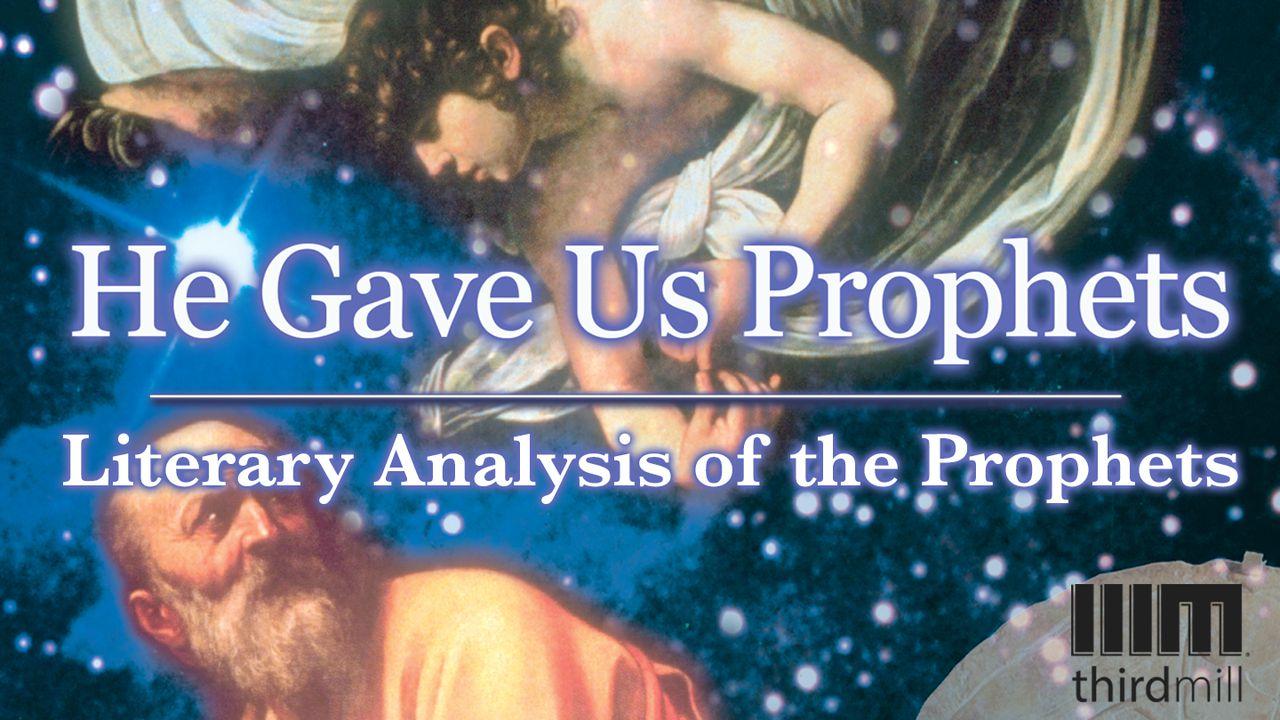He Gave Us Prophets: Literary Analysis Of The Prophets预览

Prayers of Lament: Habakkuk 2
Unfortunately, many Christians today are unfamiliar with that type of prayer that we call laments. Laments are those prayers that offer disappointment and sadness and confusion to the Lord. In our day, many Christians think that it is inappropriate to pray that way, but we discover that the prophets of the Old Testament tell us that those kinds of prayers are a very important part of our lives with the Lord. The prophets offered their confusion, their disappointment, and their sadness to God in prayer. Laments appear throughout the prophets. Jeremiah, Lamentations, and Habakkuk are especially well known for their extensive laments, but these kinds of prayers appear in many prophetic books. In fact, the book of Haggai is the only prophetic book that does not contain a passage that’s at least closely related to laments. The frequency of prayers of lament within the prophetic books indicates that this was a very central part of the prophetic ministry.
The prophets offered their concerns to the Lord through laments because they faced some of the worst times in the history of God’s people. To explore how laments appear in the Old Testament prophetic books, it helps to realize that prophets usually lamented about two different topics: first, the sins of God’s people; and second, the judgment of God against sin. One of the best ways to illustrate these two concerns of prophetic laments is to look at the laments contained in the book of Habakkuk. Habakkuk ministered just before and during the Babylonian crisis in Judah, and for this reason, Habakkuk talked to God about two big problems. On the one hand, in 1:2-4, he lamented about the sins of Israel and the way that Israel had rebelled against God. And then in chapter 1, he lamented over the horrors of God’s judgment in the aggression of the Babylonians. We should begin by looking at the prophet’s laments over the sins of God’s people.
In the opening verse of his book, Habakkuk reflected on the sins of God’s people and cried out to God. In Habakkuk 1:2, we read these words:
How long, O Lord, must I call for help, but you do not listen? Or cry to you, “Violence!” but you do not save?
Habakkuk was deeply distressed over the fact that God had not heard his prayers about the moral condition of Judah. Like many other prophets, he was especially concerned with rampant injustices in the land. And so we read in 1:4:
The law is paralyzed, and justice never prevails. The wicked hem in the righteous, so that justice is perverted.
Habakkuk was distressed that God had not reacted in judgment against the sins of his people. He felt frustrated and helpless. This opening prayer in Habakkuk illustrates one of the central ways in which prophets expressed their hearts to the Lord. When they saw the pain and suffering of God’s people, they could do nothing but cry out to God themselves and call others to cry out in laments.
Once God acted in judgment, however, Habakkuk looked at the situation again and raised a second major kind of lament that we find in the prophets—laments over God’s judgment. Consider the way he prays about Judah’s suffering under the Babylonians. In 1:13 Habakkuk says these words:
Your eyes are too pure to look on evil; you cannot tolerate wrong. Why then do you tolerate the treacherous? Why are you silent while the wicked swallow up those more righteous than themselves?
The prophet knew that God’s people had sinned terribly, but now he realized that the sins of the Babylonians were even greater. The pain and suffering under foreign oppressors compelled Habakkuk to cry out to God with deep lament. And in response to Habakkuk’s cry, God told the prophet in 2:2-20, that he would one day punish the Babylonians for their oppression.
读经计划介绍

This reading plan examines three different kinds of literature within Old Testament prophecy: historical narratives, communication with God and communication with people.
More


